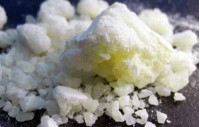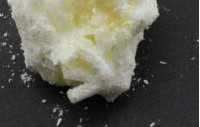Buy JWH-210, JWH-018, JWH-250 for sale online from USA vendor
Discount program: 5% OFF for the second order, 7% OFF for the third order.
Shop with us securely! We offer re-shipment guarantees.
We always provide new, legal products of impeccable quality.
Please make sure that the product is legal in your country and not under any restrictions before ordering.
We do not sell pharmaceutical products or controlled substances.
Table of Contents
- Introduction
- The History
- Effects
- Dosage
- Legal Status
- Pharmacology
- Chemistry
- The JWH-018 Trip
- Conclusion
- FAQ
Introduction
JWH-018 is a synthetic compound classified as a synthetic cannabinoid. Synthetic cannabinoids are human-made chemicals designed to mimic the effects of naturally occurring cannabinoids found in the cannabis plant, such as THC (tetrahydrocannabinol). JWH-018 was initially created by John W. Huffman, a chemist and researcher, hence the "JWH" in its name.
This compound is commonly referred to as a research chemical and was initially developed for scientific purposes, particularly in the study of the endocannabinoid system. However, it has gained notoriety for its misuse as a recreational drug due to its ability to bind to cannabinoid receptors in the brain, resulting in psychoactive effects similar to those of cannabis.
The History
JWH-018's history dates back to the early 2000s when John W. Huffman first synthesized it at Clemson University in South Carolina, USA. Huffman was researching the effects of cannabinoids on the human body and created JWH-018 as part of his work. This compound was one of many synthetic cannabinoids developed by Huffman and his team for research purposes.
Over time, JWH-018 and similar compounds found their way into the illicit drug market, often sold as a legal alternative to cannabis. They were marketed under various brand names and labeled as herbal smoking blends or incense, often with disclaimers stating that they were not for human consumption to circumvent drug laws.
The emergence of JWH-018 and other synthetic cannabinoids on the recreational drug scene led to concerns about their safety and potential health risks. These concerns prompted regulatory authorities in many countries to classify these substances as controlled substances, leading to legal restrictions and bans.
Effects
JWH-018 and other synthetic cannabinoids produce effects similar to those of THC, the psychoactive component of cannabis. When consumed, JWH-018 binds to the same cannabinoid receptors in the brain and nervous system, resulting in a range of psychoactive effects. These effects can include:
- Euphoria: Users may experience intense feelings of happiness and well-being.
- Altered Perception: JWH-018 can distort sensory perceptions, changing how users perceive time, space, and their surroundings.
- Relaxation: It can induce a sense of relaxation and reduce anxiety, similar to the effects of cannabis.
- Increased Heart Rate: JWH-018 can cause an elevated heart rate, which feelings of paranoia and anxiety may accompany.
- Impaired Coordination: Users may experience deficient motor skills and coordination.
- Hallucinations: In some cases, JWH-018 use has been associated with hallucinations and delusions.
It is crucial to note that the effects of JWH-018 can vary widely from person to person and can be unpredictable. Additionally, the potential for adverse reactions and health risks is a significant concern associated with its use.
Dosage
Determining a safe and effective dosage of JWH-018 is challenging due to its synthetic nature and lack of standardized dosing guidelines. Synthetic cannabinoids like JWH-018 can be highly potent, and even slight variations in dosage can lead to significantly different effects.
Users who experiment with JWH-018 often do so at their own risk, as the lack of regulation means that the substance's purity and potency can vary widely between sources. This unpredictability increases the potential for adverse reactions and overdose.
Due to the potential health risks and legal issues associated with JWH-018, avoiding its use and exploring safer alternatives for recreational or therapeutic purposes is strongly recommended.
Legal Status
The legal status of JWH-018 varies from one country and jurisdiction to another. In many regions, including the United States and much of Europe, synthetic cannabinoids like JWH-018 have been classified as controlled substances due to their potential for abuse and harmful effects.
These restrictions make manufacturing, distributing, possessing, or using JWH-018 for recreational purposes illegal. Violations of these laws can result in criminal charges, including fines and imprisonment.
It is essential to stay informed about the specific laws and regulations governing synthetic cannabinoids in your area to avoid legal consequences. However, it is worth noting that the legal status of these substances is subject to change as new legislation and regulations are enacted.
Pharmacology
JWH-018 exerts its effects through its interaction with the endocannabinoid system, which is crucial in regulating various physiological processes, including mood, appetite, pain perception, and more. Specifically, JWH-018 binds to cannabinoid receptors, primarily CB1 receptors, in the brain and nervous system.
This binding activity leads to the activation of these receptors and the subsequent release of neurotransmitters, resulting in the characteristic psychoactive effects associated with JWH-018 and other synthetic cannabinoids.
The precise pharmacological mechanisms and long-term effects of JWH-018 are still subjects of ongoing research. Still, its actions on the endocannabinoid system are central to its psychoactive effects.
Chemistry
JWH-018 is a synthetic compound whose chemical structure differs significantly from naturally occurring cannabinoids found in the cannabis plant. Its chemical formula is C24H23NO, part of a larger class of synthetic cannabinoids known as indole-based compounds.
The synthesis of JWH-018 involves complex chemical processes, typically starting with creating an indole core structure, which is then modified with various substituents to produce the desired synthetic cannabinoid. The precise design of JWH-018 was patented by its creator, John W. Huffman, and it has since served as a blueprint for developing similar synthetic cannabinoids.
The chemical composition of JWH-018 can vary between batches, making it challenging to accurately predict its potency and effects. This variability adds to the risks associated with its use.
The JWH-018 Trip
The "trip" or experience of using JWH-018 can vary significantly depending on several factors, including the individual's tolerance, the dosage consumed, the method of ingestion, and the user's overall physical and mental health.
Some users have reported enjoyable experiences characterized by relaxation, euphoria, and altered perception of time and space. However, others have experienced adverse effects, including anxiety, paranoia, hallucinations, and intense discomfort.
One of the most concerning aspects of using JWH-018 is the unpredictability of its effects. Due to variations in potency and purity, users can never be sure of the intensity or nature of their experience, increasing the risk of adverse outcomes.
Conclusion
JWH-018 is a synthetic cannabinoid initially developed for research purposes but has gained notoriety as a recreational drug. Its effects are similar to those of THC, the psychoactive component of cannabis, and it interacts with the endocannabinoid system in the brain and nervous system.
However, using JWH-018 comes with significant risks, including legal consequences and potential adverse health effects. Its unpredictable nature, varying potency, and uncertain legal status make it a substance that should be avoided.
Instead of seeking out synthetic cannabinoids like JWH-018, individuals interested in exploring the potential therapeutic benefits of cannabinoids should consider legal and regulated alternatives, such as medical cannabis, where available. Additionally, it is essential to consult with healthcare professionals for guidance on safe and effective treatments for various medical conditions. Safety and legal compliance should always be a top priority when considering any substance for recreational or therapeutic use.
FAQ
1. What is JWH-018?
JWH-018 is a synthetic cannabinoid, often referred to as a designer drug. It is a psychoactive compound that mimics the effects of THC, the active ingredient in cannabis.
2. How is JWH-018 used?
JWH-018 is typically consumed by smoking or vaporizing it. It is often sprayed onto plant material and sold as a synthetic marijuana or "spice" product.
3. Is JWH-018 legal?
The legality of JWH-018 varies by country and region. In many places, it is considered a controlled substance and is illegal. It is essential to check the laws in your area regarding its possession, sale, and use.
4. What are the effects of JWH-018?
JWH-018 can produce effects similar to those of cannabis, such as relaxation, euphoria, altered perception, and an increased heart rate. However, it can also lead to adverse effects like anxiety, paranoia, and hallucinations.
5. Is JWH-018 safe to use?
JWH-018 has been associated with a range of adverse health effects, including seizures, heart problems, and addiction. Its safety is a subject of concern, and its long-term effects are not well understood.
6. Are there any health risks associated with JWH-018?
Yes, there are significant health risks associated with JWH-018 use. Users may experience short-term effects like anxiety, nausea, and confusion, as well as long-term risks such as addiction, cardiovascular issues, and mental health problems.
7. Can JWH-018 be detected in drug tests?
Yes, JWH-018 can be detected in drug tests designed to identify synthetic cannabinoids. It is essential to be aware of the potential legal consequences if you are subject to drug testing.
8. How is JWH-018 different from natural cannabis?
JWH-018 is a synthetic compound created in a laboratory, while cannabis is a natural plant. The effects of JWH-018 can be more potent and unpredictable, and it may have a higher risk of adverse effects.
9. Can JWH-018 be used for medical purposes?
JWH-018 is not approved for medical use and is not considered a medication. The risks associated with its use far outweigh any potential benefits.
10. How can I get help if I have a problem with JWH-018 or synthetic cannabinoids?
If you or someone you know is struggling with JWH-018 or synthetic cannabinoid use, it is important to seek professional help. Contact a healthcare provider, counselor, or addiction specialist for guidance and support.
11. Is there a safer alternative to JWH-018 for recreational use?
Safer alternatives to JWH-018 for recreational use include avoiding synthetic cannabinoids altogether and choosing natural cannabis if it is legal in your area. Natural cannabis has a longer history of use and is subject to more extensive research regarding its effects and risks.
12. Can JWH-018 be purchased online?
The sale and purchase of JWH-018 online are illegal in many countries. Engaging in such activities can lead to legal consequences and is strongly discouraged.
Please note that JWH-018 and similar synthetic cannabinoids can be dangerous, and their use should be approached with caution. Always consult with a healthcare professional for guidance on substance use and abuse.
13. Where to get JWH-018?
You can buy JWH-018 for sale online from the best supplier at Flakkaforsale.online
To prepare the content, the following materials were used:
- FDA Substance Registration System
- Hazardous Substances Data Bank. National Library of Medicine. 28 August 2008. Retrieved 22 August 2014. 3,4-Methylenedioxymethamphetamine
- Liver transplant modulates gut microbial dysbiosis and cognitive function in cirrhosis. PDF . By HoChong Gilles, Scott C Matherly, Mohammed S Siddiqui, Puneet Puri...
- Differential impact of hyponatremia and hepatic encephalopathy on health-related quality of life and brain metabolite abnormalities in cirrhosis . By Jasmohan Bajaj
- An overview of alcohol and other drug issues
- Medicating the mind: a Kantian analysis of overprescribing psychoactive drugs B A Manninen
- The pharmacological basis of opioids Carla Ghelardini, Lorenzo Di Cesare Mannelli and Enrica Bianchi
- Ask Dr. Shulgin Online ARCHIVE: June 3, 2004
- Inhibition of plasma membrane monoamine transporters by β-ketoamphetamines. Nicholas V Cozzi, Michael KSievert, Alexander T Shulgin, Peyton JacobIII, Arnold Eruoho
- Schedules of Controlled Substances: Placement of Methylone Into Schedule I
- Bioanalysis of new designer drugs. Wohlfarth A, Weinmann W.
- New Psychoactive Substances (including synthetic cannabinoids, mephedrone, and more)
- Future Synthetic Drugs of Abuse. Donald A. Cooper. Drug Enforcement Administration McLean, Virginia
- Designer drugs: a medicinal chemistry perspective. F. Ivy Carroll Anita H. Lewin S. Wayne Mascarella Herbert H. Seltzman P. Anantha Reddy
- Synthetic cannabinoids in Europe
- Pharmacological Effects of MDMA in Man. By Enno Freye
- Drug Use in Relation to Outcome of Mammography Screening. von Euler-Chelpin M, Wu W, Vejborg and Lynge E
- DEA Drug Scheduling
- Electrophysiological Effects of Trace Amines on Mesencephalic Dopaminergic Neurons.Ada Ledonne, Nicola Berretta, Alessandro Davoli, Giada Ricciardo Rizzo, Giorgio Bernardi and Nicola Biagio Mercuri
- Electrophysiological evidence for a reciprocal interaction between amphetamine and cocaine-related drugs on rat midbrain dopaminergic neurons.Scarponi M, Bernardi G, Mercuri NB.
- Overdose of Drugs for Attention-Deficit Hyperactivity Disorder: Clinical Presentation, Mechanisms of Toxicity, and Management. Henry A. Spiller, author Hannah L. Hays Alfred Aleguas.
- Dose-dependent effectiveness of wheel running to attenuate cocaine-seeking: impact of sex and estrous cycle in rats. Peterson AB, Hivick DP, Lynch WJ.r.
- FDA Drug Safety Communication: Safety Review Update of Medications used to treat Attention-Deficit/Hyperactivity Disorder (ADHD) in children and young adults
- ADHD Medications and Risk of Serious Cardiovascular Events in Young and Middle-aged Adults
- Controlled Substances Act
- The Art of Drug Synthesis (Wiley Series on Drug Synthesis)
- Cannabis: domestic cultivation widespread
- A review of the influence of functional group modifications to the core scaffold of synthetic cathinones on drug pharmacokinetics
500g $1390
100g $390
1kg $1590
1kg $1590
1kg $1590
500g $1199
100g $550
1kg $1590
100g $690
100g $550
1kg $1590
100g $390

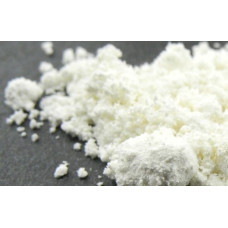

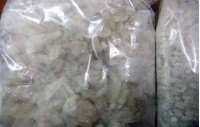
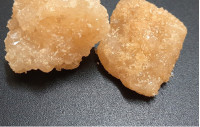
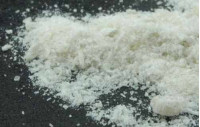
-min-200x127.JPG)

